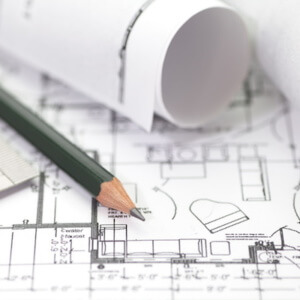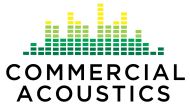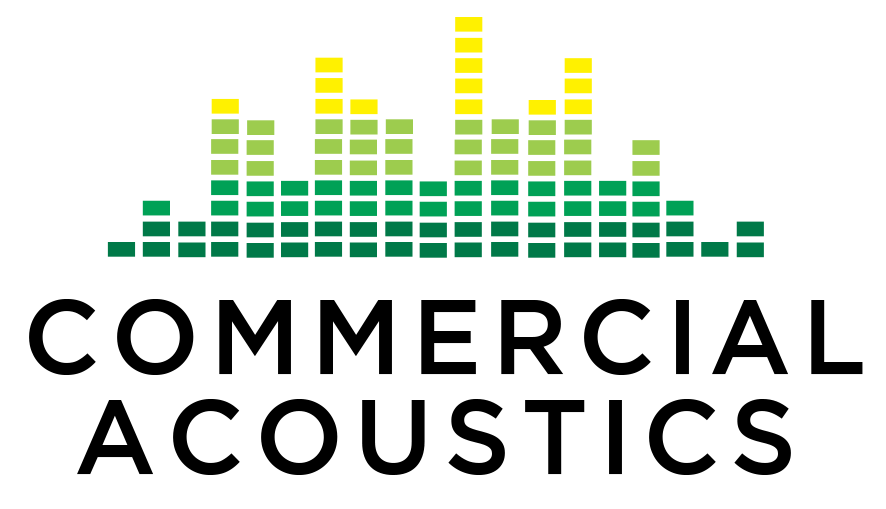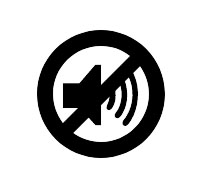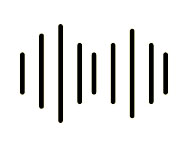When dealing with sound problems in various industries, there are numerous factors to consider. What kind of noise problem are you facing? What kind of product will be an effective solution to that problem? What common sound issues are other businesses in the same industry facing so that you can be proactive about handling them? Continue reading for helpful answers to these questions, enabling you to come up with the most effective solution for your particular noise issues.
Soundproofing
What is it?
Soundproofing means reducing and preventing unwanted noise from traveling between point A and point B.
General Soundproofing Problems
One of the most common issues that soundproofing measures can combat is footfall. Footfall is the sound that comes from loud footsteps when people walk around. This can cause huge disturbances in multi-family complexes or buildings housing various businesses with multiple floors. Another major issue is the sound transfer between walls and through floors and ceilings. Soundproofing is an effective way to keep sound contained in the space you want it to be in while preventing it from seeping into other areas. Street noise including sound from construction, traffic, loud neighbors, or airplanes, among many other things, can also be reduced by soundproofing.
Examples of Soundproofing Products
Soundproofing products are often made of dense materials in order to add more mass to a surface, deflecting sound rather than allowing it to travel through it. If you are experiencing problems with footfall or sound transfer between floors, a floor underlayment may be an effective solution for you. Floor underlayments are designed to be placed onto bare floor surfaces and stop sound waves from traveling between floors. Another great soundproofing product for the issues mentioned above is a soundproofing wall membrane. These are designed to transform walls into sound suppressing structures, which reduces noise from spreading into unwanted spaces by up to 75%.
Soundproofing Problems in Various Industries
Hospitality
Soundproofing in the hospitality industry is especially important since guest satisfaction reports and reviews are so crucial to having a successful business. Noise complaints are often a top concern of hotel management, especially in business-oriented or upscale hotel brands. Soundproofing is also essential in places like restaurants, entertainment areas, and other types of gathering places. Guests want to be able to hear conversations and speak with their friends without having to yell over excessive background noise. These types of issues can contribute to dissatisfied guests, poor reviews, and losing business to quieter competitors.
Multi-Family Developments
In multi-family developments, soundproofing is especially crucial. Strict residential business codes can pose an issue for architects, project managers, and construction teams. However, ignoring the acoustics of a multi-family development will most definitely create issues for tenants and legal problems for the builder. With thin walls and so many people living in close quarters, noise transfer between walls and through floors or ceilings is one of the biggest issues in apartments or condos. If tenants are unhappy, they will complain to property managers, have a poor living experience, and ultimately choose to live elsewhere.
Commercial Spaces
Meeting building codes in a cost-effective and efficient way is typically a top concern for commercial construction projects. Businesses need high speech intelligibility for workers to be productive and to attract consumers to the space. Sound transfer between workspaces is a major issue affecting ability to focus and employee morale. When multiple business or retail spaces are in the same building, noise transfer can distract and annoy your neighbors, making for a negative community atmosphere.
Sound Absorption
What is it?
Sound absorption is all about increasing the sound quality in a space by reducing echo and reverberation.
General Sound Absorption Problems
Loud echo and long reverberation time can be very distracting in homes, businesses, and workspaces. If sound is not being properly absorbed, the speech intelligibility of the space is low. This means that conversations are not clear to the people involved, and also are not private as voices will spread throughout the room and are able to be heard by everyone.
Examples of Sound Absorption Products
Products designed to absorb sound are often made of soft, airy materials such as foam. They are meant to trap and absorb sound waves, effectively reducing echo and reverberation. Many of these products, such as absorption panels and acoustical wedge foam, can be easily hung on walls throughout a space to improve the acoustical quality of the room.
Sound Absorption Problems in Various Industries
Hospitality
Since hotel rooms and restaurant tables are often so close to each other, sound absorption in hospitality will greatly improve guest satisfaction. No one wants their hotel room to be rattling from the person next door’s TV, or hear every word of the conversation at the table next to you when you’re trying to enjoy dinner. Low speech intelligibility will turn guests away from your business and can lead to bad online or word of mouth reviews, ultimately hurting your brand image and bottom line.
Multi-Family Developments
Multi-family developments often face similar issues, since units are so close to each other. Noise from the neighbor’s loud TV, music, or guests can disturb the living space of other tenants. Many multi-family developments have very thin walls that are not meant to suppress sound. However, adding additional sound absorption measures can reduce the echo and reverberation bouncing around small spaces and make for happier tenants that are likely to recommend the complex to their friends or re-sign their lease.
Commercial Spaces
In commercial spaces, proper sound absorption can provide a productive workspace for employees and comfortable experience for customers. Loud rattling from pipes can be a disturbance in stores, offices, and businesses but can be combated with proper sound absorbing materials. Echo and reverberation coming from loud voices, music, or other sources can also be absorbed to make for a better atmosphere and increased speech intelligibility. Absorption is especially important in places like auditoriums, lecture halls, music venues, or recording spaces. By using proper absorption techniques, sound quality will be dramatically enhanced.
Sound Masking
What is it?
Sound masking involves adding constant, low-volume background noise into a space in order to reduce sound distractions.
Common Sound Masking Problems
When there is excess noise in offices or workspaces, it can be very hard to focus on the task at hand. Sound masking covers up that excess noise and therefore increases productivity and ability to focus. Any communal space with a high amount of people speaking or passing through can create a lot of background noise that is hard to speak or think over. Many homes often benefit from sound masking when dealing with noise from the street, nearby construction, or noisy neighbors.
Examples of Sound Masking Products
Sound masking products differ from soundproofing or absorption products because instead of getting rid of all noise, they actually add noise to the space. White noise machines put out a continuous, low-volume amount of background noise that many find soothing. A sound masking speaker system is a great option to be implemented in businesses or offices. This product creates constant background noise at a decibel level people cannot notice, while still masking unwanted noise.
Sound Masking Problems in Various Industries
Hospitality
Sound masking is a great solution for communal spaces in hotels such as the lobby, business lounge, or conference room. This gives guests speech privacy and the ability to focus on the conversation or task in front of them without distraction. Restaurants and bars often use sound masking as well to increase privacy and decrease disturbances from surrounding guests.
Multi-Family Developments
Many multi-family development residents can have a hard time working from home or sleeping at night because of all the surrounding noise. Background noise from a white noise machine helps many people fall asleep and stay asleep. It also is known to increase productivity if you have a home office or work remotely and need to be able to work from home.
Commercial Spaces
Sound masking systems are often beneficial in offices, conference rooms, and workspaces. Poor speech intelligibility is often a reality in offices with communal workspaces or close desks. Communal spaces are known to increase employee morale and team efficiency, but often face noise issues. Sound masking can get rid of those issues, fostering a community feel while still allowing employees to be productive. Retail spaces often use sound masking systems as well so that shoppers are not overwhelmed from the music, voices, and other noises in the space.
With this information, you can effectively identify and remedy your sound issues in various industries. If you would like to speak with someone about acoustical solutions for your project, please contact one of our sales representatives at 888-815-9691.
